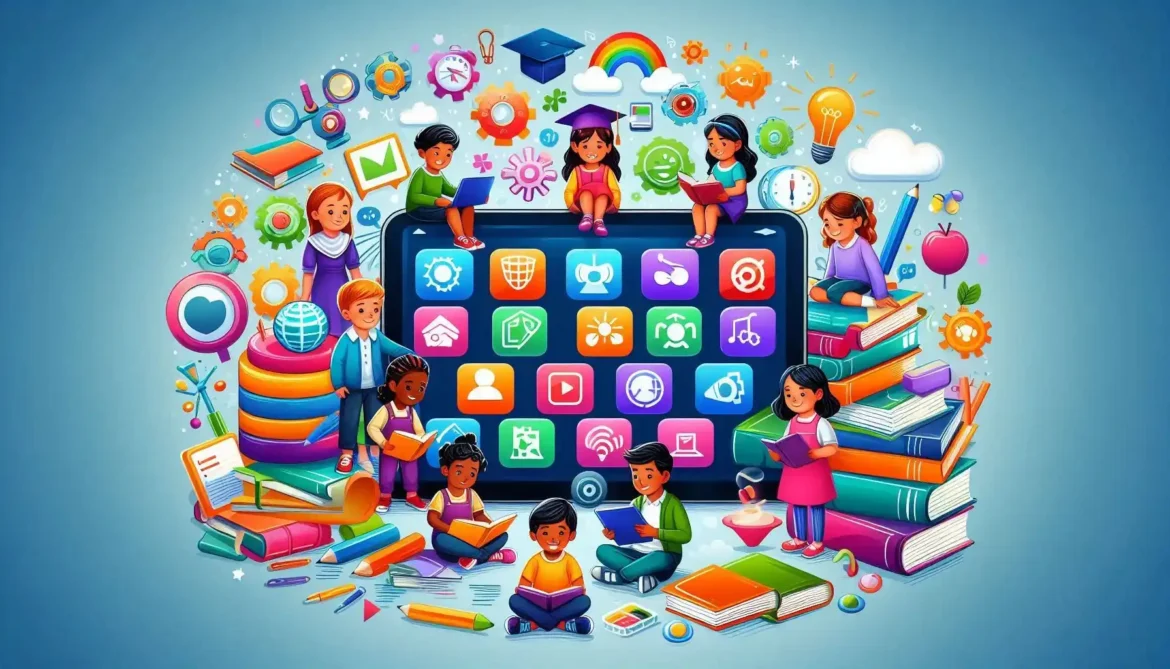Frequently Asked Questions:
Are these apps safe for children?
Answer : Most apps mentioned have robust privacy policies. However, always supervise children’s online activity and review app permissions before installation.
How much do these apps cost?
Answer : Some apps are entirely free (Khan Academy, Khan Academy Kids), while others offer free versions with limited features or require subscriptions (ABCmouse, Mathletics).
How can I choose the right app for my child?
Answer : Consider your child’s age, learning style, and specific learning needs. Look for apps with engaging content, positive reinforcement, and clear learning objectives. Read reviews and check ratings before downloading.
Are these apps replacements for traditional teaching?
Answer : No, these apps are supplementary tools designed to enhance learning, not replace a teacher’s role.
How can I ensure my child uses these apps effectively?
Answer : Set clear expectations, monitor their usage, and encourage balanced screen time. Make learning fun and engaging, and be involved in their learning journey.
The digital landscape offers a vast array of educational resources. By carefully selecting apps and tools appropriate for your child’s age and learning goals, you can significantly enhance their educational experience and foster a love for lifelong learning. Remember to personalize the learning experience and encourage a balanced approach that incorporates both digital and traditional learning methods.
What are educational apps and tools, and how can they empower learning?
Answer: Educational apps and tools are digital resources designed to facilitate learning across various age groups and subjects. They can empower learning by providing personalized, interactive, and engaging experiences that complement traditional teaching methods.
What are some highly-recommended educational apps for young children?
Answer: Some popular educational apps for young children include Khan Academy Kids, BrainPOP Jr., and Endless Alphabet. These apps offer age-appropriate content, games, and activities that help build foundational knowledge in subjects like math, reading, and science.
How can parents and educators ensure safe usage of educational apps?
Answer: To ensure safe usage of educational apps, parents and educators should review app ratings and content, monitor children’s usage, and enable privacy settings. Additionally, they should engage in open discussions about online safety and appropriate app usage.
Are there any educational apps specifically designed for special needs students?
Answer: Yes, there are several educational apps tailored for special needs students. Examples include Proloquo2Go for communication support, Sensory Apps for sensory development, and Co:Writer for assisted writing. These apps cater to various learning needs and abilities, promoting inclusivity and accessibility.
How can educational apps support remote learning and homeschooling?
Answer: Educational apps can support remote learning and homeschooling by offering structured lesson plans, interactive activities, and real-time feedback. They can also enable teachers and parents to track student progress, customize learning paths, and collaborate on educational goals.
What are some free educational resources available online for students of all ages?
Answer: There are numerous free educational resources available online, such as Coursera for college-level courses, Open Culture for multimedia content, and Duolingo for language learning. Khan Academy offers a wide range of courses and resources for learners of all ages, including test prep and advanced subjects.
How can teachers effectively integrate educational apps into their classrooms?
Answer: Teachers can integrate educational apps into their classrooms by aligning app usage with curriculum objectives, incorporating technology into lesson plans, and providing opportunities for students to engage with the apps independently or collaboratively.
What are some best practices for selecting age-appropriate educational apps?
Answer: When selecting age-appropriate educational apps, consider the child’s interests, learning style, and developmental level. Look for apps with positive reviews, age-appropriate content, and clear instructions. Additionally, prioritize apps that offer offline access, customization options, and opportunities for creativity.
Can educational apps help improve students’ digital literacy skills?
Answer: Yes, educational apps can help improve students’ digital literacy skills by introducing them to various technologies, promoting critical thinking, and encouraging responsible online behavior.
How can parents and educators encourage a healthy balance between screen time and other activities?
Answer: To encourage a healthy balance between screen time and other activities, parents and educators should establish clear boundaries, provide alternative activities, and emphasize the importance of face-to-face interaction. By integrating educational apps into a well-rounded learning plan, students can reap the benefits of technology while maintaining a healthy lifestyle.




